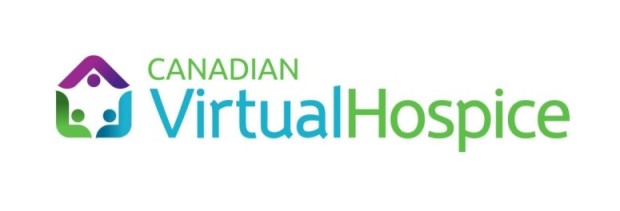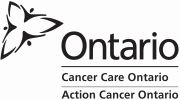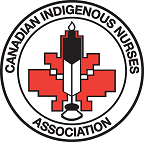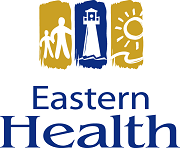Kim C.
Kim Carlick is a Yukon Elder, Southern Teshoni and a member of the Kwanlun Dun First Nations. Born and raised in Whitehorse she works as a Nursing Home Attendant.
Death can be peaceful
Kim shares how death can be peaceful. (0:36)
Other content for:
First Nations - New Videos
- Saying final words and letting a loved one go (1:42)
- Time, silence and respect in end of life care (2:21)
- Discharging patients to a remote community (1:33)
- A good death (0:48)
- Accessing pain control in small communities (1:09)
- Planning a discharge in advance (3:43)
- Caring in small communities (1:21)
- Using community resources to support home death (3:43)
- Opening conversations about advance care planning (1:41)
- Elders often do not talk about death or illness (1:01)
- Traditions when a person dies at home (0:43)
- How a community shows support (1:36)
- Combining traditional and Christian values (2:01)
- Death, trauma and healing in the Indigenous community (1:50)
- A good death (0:34)
- Challenges for people from rural communities traveling for care (2:13)
- The fight to live (1:37)
- Respecting a person's chosen gender (1:15)
- Two spirit and LGBTQ+ people and end of life wishes (2:26)
- Culturally safe urban health spaces (1:17)
- The importance of holistic care across healthcare settings (1:09)
- Hospice options needed for Indigenous people (1:18)
- Making plans makes a difference (1:12)
- Having conversations about end of life and grief (3:06)
- Use your five senses to engage and listen carefully (1:50)
- Dying at home (1:37)
- Helping a patient with final wishes (1:20)
- Reflecting Indigenous culture in healthcare delivery video id 410257402 not found
- Providing a safe space for your patients (1:34)
- Understanding holistic healthcare (1:03)
- Healthcare and cultural nuances (1:17)
- What cultural safety means to me (1:15)
- Celebrating life before death (2:13)
- MAID is now an option (1:28)
- Helping other families by sharing stories of suicide and loss (2:27)
- Self-care and support in my work (1:54)
- Grief is complex and differs with each situation (1:54)
- Caring for patients and families at end of life (3:36)
- Spirituality is not only about religion (0:48)
- Respecting wishes at the end of life (3:07)
- Traditions differ among families (0:48)
- Giving thanks for a peaceful death (1:26)
- Reclaiming who we are as a people (2:12)
- Trauma informed care requires an understanding of history (3:28)
- It takes a healthy child to raise a healthy village (1:20)
- Our healing affects generations (1:06)
- Religious influences in my life (4:02)
- The comfort of a Bible and prayer at end of life (1:40)
- Why we prefer our home to a hospital (1:33)
- Understanding and respecting cultural ways of knowing and wishes (3:40)
- When a loved one is on life support (1:47)
- Saying goodbye when a relationship is complicated (2:59)
- Supporting a family at the bedside of a loved one (2:35)
- Taking the opportunity to say goodbye (1:40)
- When you are "stuck" in grief (1:30)
- Different ways to help you grieve (2:55)
- Leading individuals in prayer when they are dying (2:32)
- Talking about end of life is difficult but important (1:53)
- Honouring end of life wishes (2:51)
- The importance of listening, understanding and building relationships (3:18)
- Healthcare providers must self-educate about Indigenous history and culture (0:58)
- Understanding Indigenous culture and history (3:50)
- Society could benefit from Indigenous practices and ways of knowing (3:41)
- The power of medicinal trees and plants (1:12)
- Our ancestors bring comfort at end of life (1:59)
- Using plant medicines with guidance from our ancestors (1:41)
- My diagnosis affected my work, my education and my finances (1:02)
- Using traditional medicine and western medicine (2:01)
- The strength of my grandmother (2:41)
- We're not just another chart (0:44)
- My doctor showed no empathy: Advocating for compassionate care (4:21)
- Facing a second diagnosis (1:00)
- The stress of travelling for scans and tests (1:43)
- Losing my hair (1:15)
- Talking to my children about my cancer and treatment (2:45)
- My spirituality helped me find balance and strength (2:43)
- Supporting conversations between patients and family (1:10)
- Supporting communities in the North (1:43)
- Palliative care offers many layers of care (1:22)
- Palliative care is holistic care (0:46)
- Pain control in remote communities (1:17)
- The challenges of discharge planning (1:17)
- Navigating health services (1:25)
- Social media and respecting privacy (0:52)
- We're not in this together (0:42)
- Supporting decision-making (2:20)
- A good death: Planning for the best and adapting (1:15)
- Understand individual wishes and beliefs (1:26)
- Provide culturally safe, person-centred care (2:15)
- When there aren't words for an illness or disease (0:45)
- Language around death and dying (1:08)
- Recording our values (1:23)
- Supporting patient and family decision-making (1:14)
- The benefits of a healing room in a hospital (2:15)
- Our palliative care doctor helped guide us (1:02)
- Supporting families through a palliative care journey (2:00)
- How children can honour their loved ones through ceremony (2:56)
- Reflecting on the year after my mom's death (3:04)
- Honouring our mom after she died (2:14)
- Traditions in the last few days of life (1:09)
- Everyone says goodbye in their own way (2:19)
- Honouring and caring for my mom (1:48)
- Understanding and respecting the care needs of residential school survivors (2:38)
- Hospitalization and residential school trauma (2:19)
- Caring for our Elders in community (3:49)
- Traditions when a loved one dies (2:17)
- Sharing love and support with family (2:23)
- The importance of traditional food (0:54)
- Staying at the hospital with my Auntie (2:18)
- The importance of being out on the land (0:46)
- Caring for loved ones at end of life (1:35)
- Thinking about how we can support escorts and families in need (1:59)
- Getting to know the Elders in small communities (1:51)
- I try to support people in my community who are sick (1:09)
- It's a tradition in our community to have a homemade casket (0:58)
- Talking about death can help with grief (3:06)
- My mother didn't want young grandchildren at her burial (2:00)
- It's important to talk to our children about death (2:00)
- The birth of my daughter brought joy to my sick father (1:19)
- Seeing people in remission gives us hope (0:28)
- There's no word for cancer in our language (1:34)
- When someone wants to die in their home community (1:32)
- It was very hard for me to accept my father's death (0:58)
- Managing pain medications and affect on grief (1:30)
- My father came home to die (1:12)
- My father's diagnosis (1:53)
- Understanding death and aging (3:10)
- I always want to keep learning and living for today (4:09)
- The impacts of residential school: Finding my own identity (4:10)
- Talking to our grandchildren about how things have changed (3:31)
- I speak up so our people our treated with respect (2:21)
- Talking to my husband about end of life wishes (2:26)
- My son's cancer diagnosis (3:35)
- Interpreters and navigators are very helpful (1:15)
- Learn about the community and its people (2:37)
- Making amends and asking for forgiveness (1:57)
- Knowing my own boundaries and caring for myself (1:47)
- How I think of "hope" at the end of life (1:45)
- Asking someone what they wish for at the end of life (1:34)
- Blending religious and traditional practices (1:46)
- My perspective on death and dying (0:33)
- Death "out of season": When a young person dies (2:17)
- Supporting families providing care (2:42)
- Helping people leave the world with music, calm and grace (3:44)
- Explaining the life cycle to children (3:45)
- It's about the person's last breaths on Mother Earth (2:03)
- God is waiting: Helping people who are leaving this plain (2:42)
- The fear of dying and the power of companionship (1:42)
- Completing your purpose (1:12)
- Religion, hymns and drumming (1:47)
- The Native Grieving Prayer (2:47)
- My sister is still with us in spirit (0:55)
- Ceremony for my sister (3:05)
- Talking about your pain can help you on your healing journey (1:08)
- Helping community when traumatic death occurs (2:24)
- I counsel and pray with people in my community (1:19)
- My kids feel helpless but they care for me (1:09)
- Being open with my family (2:17)
- Learning about my disease and educating others (1:08)
- Both laughter and tears are good for you (1:47)
- Healthcare providers need to make sure patients understand (1:39)
- It's important to bring an escort to appointments (2:00)
- I've learned a lot from my support group (1:24)
- I try to remain positive when I think about my cancer (2:41)
- Helping people talk about loss (2:34)
- Talking about death at end of life (2:10)
- Maintaining hope and moving through grief (2:31)
- Honoring a person as they are dying (2:18)
- Many First Nations Elders want to die at home (2:14)
- Embrace your memories (1:11)
- Self-care (1:58)
- Show compassion until the last breath (2:15)
- Gestures and beliefs that can help with grief (1:32)
- Death is not the end (1:19)
- Challenging the health system to honour culturally safer care (1:39)
- How can we best care for you? (1:39)
- Walk with a person at end of life (1:31)
- Accompanying and Elder and her family as she transitioned to the spirit world (4:13)
- When a child dies (1:34)
- Talking about end of life can help to bring comfort (2:35)
- The person legacy lives on through what they've taught me (1:11)
- Caring for all aspects of the person (1:17)
- Supporting cultural traditions and practices (3:02)
- Traditional music and spiritual care (1:14)
- Wearing a clerical collar and misconceptions about spiritual care (2:28)
- Self-care helps me stay on track and focused (2:00)
- Spritual care at end of life (2:34)
- Hospital changes to meet the needs of Indigneous patients (1:39)
- Celebrating similarities in belief systems (1:39)
- The importance of fire (1:39)
- Adapting cultural practices in health facilities (1:52)
- Community members as supports at the bedside (1:47)
- Navigating health language and health systems (2:50)
- Creating a care plan for spiritual and emotional care (1:48)
- Why cultural practices differ in remote communities (1:59)
- Providing spiritual support in a hospital setting (2:56)
- Understanding and respecting the person's wishes (4:43)
- Feel your own grief (1:45)
- Our dignity (button) blanket (2:52)
- The importance of laughter (4:58)
- Western philosophy and Indigenous philosophy (2:55)
- A doctor I'll never forget: Excellent culturally safe care (1:08)
- Meeting families where they are at (2:49)
- Avoid making assumptions (2:02)
- Educating healthcare providers about Indigenous history to improve care (2:37)
- Impact of residential schools on grief (7:30)
- Colonization, trauma and responses to dying and grief (4:15)
- Listening and taking time (5:11)
- Use clear language (1:15)
- Respecting ceremony (1:15)
- The words you use matter: How some words shut down discussion (1:04)
- Paying attention to everyone in the room (2:17)
- How I care for and protect myself (4:14)
- Having a personal relationship with the patient and family (1:21)
- Working with patients and families (4:42)
- Losing my hair (1:09)
- Cancer has brought us closer (1:24)
- Waiting for the other shoe to drop: Living with cancer (1:47)
- Support from my cancer community (0:48)
- I was offered very little support or compassion (1:13)
- Support from my husband made the difference (1:08)
- Sharing my diagnosis within our community (1:48)
- My treatment and additional diagnosis (1:33)
- My doctor is interested in my life, not just my cancer (0:54)
- My diagnosis was given with no compassion (1:53)
- Travelling for care is exhausting (0:28)
- We've faced prejudice before (0:55)
- We had to fight to have an escort for my appointments (0:42)
- Fighting to get a diagnosis (3:18)
- Staying positive helps to take the power away from the word "cancer" (3:10)
- Ceremony helps families to grieve (3:39)
- Thinking about quality of life for my mom and our Elders (2:58)
- Take time to listen to what Elders are telling you (2:01)
- Recognizing impacts the trauma of residential schools on longterm care residents (10:42)
- Supporting families to be present when the person is transitioning (1:31)
- Talking to families about the transition (3:51)
- Extensive loss and trauma complicates grief (2:29)
- Long-term care reminds some residents of residential school (2:09)
- Let the patient take the lead (0:48)
- Building trust is key to creating solid relationships (0:46)
- Asking questions and listening to answers (1:22)
- Why someone might not self-identify as Indigenous (2:28)
- Understanding the needs of the urban Indigenous population (2:48)
- Opening up a difficult conversation about death (1:53)
- End of life planning as celebrating a legacy (2:16)
- Feeling a range of emotions can be healing (0:54)
- Giving people time to consider options and make decisions (2:32)
- Questioning our assumptions about traditions or religious practice (0:57)
- Trauma informed care recognizes past experince can impact current reactions (4:12)
- Trustful and respectful communication is key (1:37)
- Talking about death, dying and palliative care (3:22)
- Decolonizing healthcare: Questioning currrent policy (1:27)
- Making space for different ways of knowing and being (2:24)
- We have to be aware of our own biases and judgements (1:42)
- What does "patient centred care" really mean? (1:09)
- There is always a power differential in healthcare (2:47)
- We are all related (1:03)
- My job can be emotionally difficult (1:30)
- Working together to return a person to community (1:54)
- When someone is dying the community helps out (1:13)
- Oldest siblings often make care decisions (1:51)
- The benefits of a hospice (1:29)
- Traveling for care impacts families and care decisions (1:25)
- Late diagnoses of people from remote communities (2:02)
- Often patients from fly-in communities are Christian (1:46)
- Family meetings and making care plans (1:31)
- Escorts are often necessary, not just for Elders (1:31)
- Responding to challenges of travelling for care from remote communities (1:56)
- All the details can be overwhelming (1:05)
- My role as an Indigenous Patient Navigator at the Cancer Centre (1:42)
- I'm grateful for my good life (2:31)
- Be kind (0:37)
- It's good to talk about ceremony (0:55)
- We have to respect people's grief (1:12)
- My grandmother was religious but also traditional (4:01)
- Helping my son cope with loss (4:01)
- Accepting the cycle of life (2:40)
- When someone dies, we help them on their journey (5:00)
- Grieving a death by suicide (2:00)
- Grief is painful whatever the age of the person (2:01)
- Supporting people going through loss (2:45)
- Discussing palliative care with patients (1:51)
- Caring for a loved one in the hospital can be hard (1:24)
- A tribute to my mom (6:37)
- Practical advice for people travelling for care (1:46)
- Care conversations when "palliative care" and "cancer" can't be used (1:07)
- Losing their support system (1:15)
- Providing palliative care at home in small communities (1:12)
- Respecting a person's rights to make informed decisions (1:02)
- Family support for care in the home (0:44)
- Never make assumptions about basic services (1:37)
- Caring for my wife (5:35)
- Building on strengths in communities (1:39)
- Medication and pain control in remote communities (2:25)
- Discharging a patient for care at home (3:42)
- Collaboration between community and health systems (1:41)
- Making decisions about treatment and leaving community (2:28)
- Care is a community responsibility (1:40)
- Grief and Indigenous healthcare providers (1:26)
- Holly Prince (1:08)
- Building trusting relationships (1:46)
- Supporting families during dying (0:57)
- Holly Prince (2:07)
- Trust, respect and honest communication (1:13)
- Adapting language about palliative care (3:16)
- Practicing true person-centred care (1:09)
- Empowering patients and families to ask questions (0:58)
- Humility and respect: Building a relationship with families (2:29)
- Providing culturally safe care (1:44)
- How communities rally when someone is ill (1:09)
- Validating caregiving in First Nations communities (2:06)
- The goal of providing care in communities (1:01)
- Quality care recognizes extended families (3:10)
- Understanding advance care planning (1:40)
- Cultural humility (1:46)
- Limitations of cultural safety in the health system (1:03)
- Ensuring Indigneous Peoples' voices are heard (0:31)
- Sisters' last visit (1:57)
- The support of extended families: A personal story (1:57)
- My "work family" is a real support (0:53)
- Crow and Wolf people take care of each other (2:06)
- Community supports the ill person and family (1:16)
- Letting the spirit go (1:34)
- Giving permission to let go (1:44)
- Using intuition in providing care (2:15)
- Asking questions and open communication (4:22)
- When someone dies: The importance of rituals and ceremony (2:09)
- Learning from a dying child (4:22)
- Self-care rituals (3:16)
- A special patient: Supporting an Elder's dying time (8:59)
- The spirit world is just a step away (0:58)
- Connecting to our land and to our spirit (2:06)
- I'm now at peace with my daughter's death (2:05)
- My daughter's death (3:44)
- It's not always possible to die at home (2:14)
- The spirit world (2:07)
- There's so much fear about death (3:16)
- Teaching our people to talk about their lives and their struggles (3:12)
- Counselling and helping people to heal (3:37)
- Be gentle and kind (1:18)
- A good death (1:03)
- Families can come together to give support (3:27)
- A connection continues after death (0:29)
- A special connection (2:07)
- Grief after my brother's death (2:26)
- Elders can guide funeral plans (3:29)
Subscribe
Our free monthly newsletter offers the latest news, tools, and resources for palliative care, advanced illness, and grief.
sign up





























